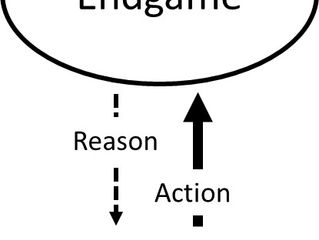Three Ways To Be Rich
Once upon a time, there was only one way to be rich: Be powerful. If you were powerful, you could take from others. Through force, you...


When War Games Go Wrong
In 2002, the U.S. military played a war game called “Millennium Challenge.” In charge of the "Blue" U.S. Forces were the highest-ranking...
Silicon Valley Investor Naval On Positive-Sum and Zero-Sum Games
Investor Naval Ravikant is considered a sage in Silicon Valley. Dilbert creator and tech investor Scott Adams calls him one of the...


Day Of The Endgame
When you’re figuring out the other side’s strategy, you start with their Endgame. That’s because most people follow the first rule of...


The First Step Of A Leader
In A Spy’s Guide To Strategy, we talk about three steps every strategist must take: 1. Imagine the Endgame 2. Reason Backward 3. Take...


The Hero's Journey As A Strategy
An astute reader of A Spy’s Guide To Strategy wrote, “I've known about the Hero’s Journey concept for years as a storytelling formula but...


The Strategy Of Positive Thinking
A strand through American history is "positive thinking." From Ben Franklin's advice to the "health and wealth gospel" of the 19th...


Bin Laden Before And After 9/11
When Bin Laden attacked on 9/11, a lot of people said we should have seen it coming. He had declared war on the United States in 1996. He...


The Mindset(s) Of Strategy
Strategy is hard. It's hard because of risk, chance and uncertainty. It's hard because outcomes are hard. But it's especially hard...
The Rule Of Four (Or Five)
You can make strategy easy if you focus on one thing. A goal. An objective. A single measure. It's also a good way to make sure your...















